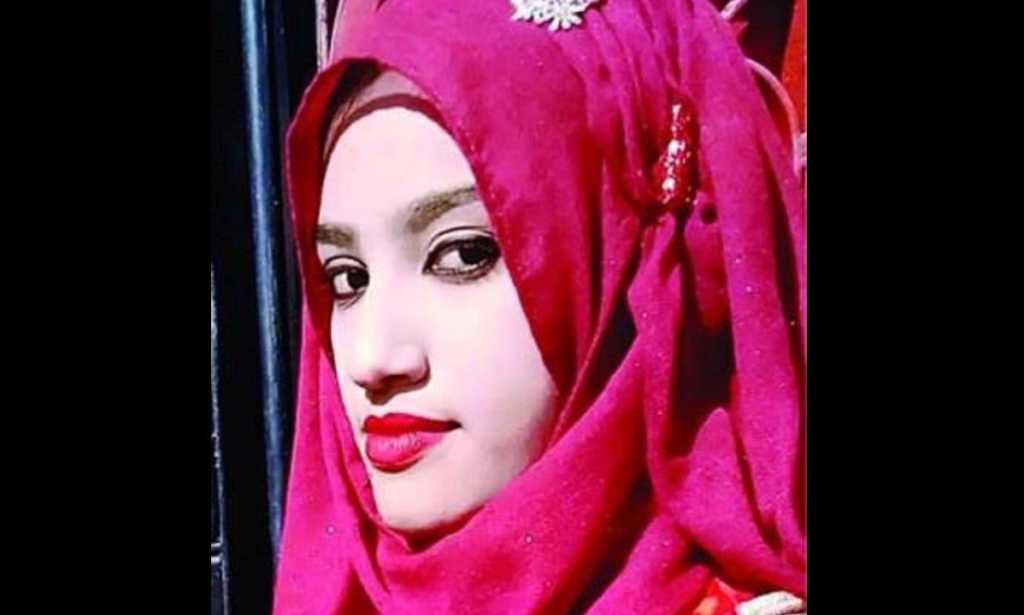Bangladesh has erupted into fury over the burning death of a young woman who courageously reported an incident of sexual harassment to the local authorities and suffered the ultimate consequence.
What is the background?
Nusrat Jahan Rafi, 19, from a small town 100 miles (160 km) south of Dhaka, was attending a madrassa, or Islamic school, when the sexual assault took place. Rafi recounted that her headmaster summoned her to his office before touching her inappropriately. Realizing the seriousness of her situation, Rafi did the right thing — fled the room and went to the authorities.
Unfortunately, in an extremely conservative Muslim religious society, matters of sexual harassment and assault remain rather taboo subjects. To her bemusement, Rafi found herself being filmed when making a statement to the police. Understanding the danger she would be in if the footage were released, she attempted to cover her face.
The police officer can be heard telling her that it is “no big deal” and repeatedly asks her to stop hiding.
But as soon as her identity was revealed, it was too late — the mobile phone footage was leaked to the local press and the brave young woman immediately found herself in grave peril.
What happened next?
With most cases of sexual assault and harassment going unreported, Rafi became a prime target for those who disapproved of her attempted legal action. Then, after police decided to arrest the headmaster, things got even worse.
Before long, the mob had gathered momentum, and a group of people were protesting outside the police station, demanding the headmaster’s release. According to the BBC, the protest had been arranged by two male students and “local politicians were allegedly in attendance.”
Still, the courageous teen kept attending school, working hard and attempting to complete her studies.
Then, on April 6, the worst-case scenario became a stark reality. As Rafi’s brother walked his sister to her exams, he was stopped and she was asked to follow a female student to the rooftop.
“I tried to take my sister to school and tried to enter the premises, but I was stopped and wasn’t allowed to enter,” said Rafi’s brother, Mahmudul Hasan Noman.
Informed that one of her friends was getting beaten up, Rafi dutifully followed the girl, only to find an aggressive group burqa-wearing students who demanded that she immediately withdraw her allegations. When she refused, they doused her with gasoline and lit a match.
Police Bureau of Investigation chief Banaj Kumar Majumder noted that the killers wanted “to make it look like a suicide.” But Rafi, determined as ever, managed to survive after her cowardly attackers fled. Barely alive, she had suffered burns that covered some 80 percent of her body.
Before she succumbed to her devastating injuries, she had one final message of defiance.
“The teacher touched me — I will fight this crime till my last breath,” she said in the ambulance.
On April 10, Nusrat Jahan Rafi died.
What has the reaction been like?
Police have since arrested 15 people, seven of whom they say were directly involved in the murder. Prime Minister Sheikh Hasina met Rafi’s family in Dhaka and insisted that “none of the culprits will be spared from legal action.”
Widespread street protests have also erupted, as the country attempts to unshackle itself from the culture of fear, shame and isolation that surrounds incidents of sexual violence.
“When a woman tries to get justice for sexual harassment, she has to face a lot of harassment again. The case lingers for years, there is shaming in society, a lack of willingness from police to properly investigate the allegations,” said Salma Ali, a human rights lawyer and former director of the Women Lawyers’ Association, according to the BBC.
“It leads the victim to give up on seeking justice,” she added. “Ultimately the criminals don’t get punished and they do the same crime again. Others don’t fear to do the same because of such examples.”
Along with these utterly barbaric responses to sexual harassment and assault, the oppressive Islamic society is also to blame for widespread persecution of the country’s 800,000+ Christians.
Open Doors USA estimates that Bangladesh is home to an increasing number of Christians who have converted from Islam — this alone poses great risks to personal safety.
“The government increasingly gives in to the demands of local Islamic groups that monitor minorities, especially converts,” reads a fact sheet at the persecution watchdog’s website.
“These groups are instilling fear, and many are inspired by international Islamic groups like Islamic State (IS). Fatwas — specific interpretations of Islamic law — dictate daily life all over the country, especially in rural areas,” it notes.
Please pray for this heroic girl’s family as they come to terms with her untimely death, and ask that God would uphold all those who face religious persecution in this troubled nation.



